What should my long run pace be?
What should my long run pace be is a crucial question that distance runners should know!
How fast should we run our long runs?
Spoiler Alert: slower than you probably are. In fact, you should run the majority of your long runs slower than your goal race pace!
Now if you aren't familiar with why you should run your long runs slower than your goal race pace then your initial reaction will probably be something like:
"How am I supposed to train and complete a marathon in the finishing time that I want if I'm running my longest runs during training at a slower pace than my goal race pace?!"
I get it!
But it all comes down to physiologically how our body adapts and reacts to each different workout and process of marathon training.
But first, let's answer an important question.
Does pace matter on long runs?
Yes! It absolutely does matter!
Each run that you run has a very specific physiological purpose to help train and adapt your body in order to run the full 26.2 miles on marathon race day.
The specific purpose of the long run is to build those aerobic Type-1 muscle fibers that are absolutely essential in allowing your body to run the full 26.2 miles.
Without sufficient Type-1 muscle fibers you simply cannot run long distances.
However, if you are trying to push your pace and run fast during these long runs you will not be allowing your body to build Type-1 muscle fibers and will ultimately be jeopardizing your potential to complete the marathon distance.
The goal of your shorter runs (and any interval, tempo, etc. workouts you might do) is to keep that muscle memory and train your body to run faster and be capable of running at your goal pace.
I like how Jeff Galloway puts it,
"You'll receive the endurance based upon the distance of the current long run. In other words a long run at 20 minutes per mile for 15 miles gives the same endurance as a 15 mile run at 10 minutes per mile or at 5 minutes per mile."
And that is exactly what we are after when running a long run: building endurance (not speed).
Why should my long run pace be slow? what are the benefits in doing so?
There are many reasons as to why your long run pace should be run slow and steady while training for a marathon or half marathon!
Here are 8 of the best reasons!
1. You target your aerobic energy system.
A lot of runners are running too fast and pushing their long run pace too much to take advantage of all the benefits that follow here.
They are constantly targeting either their anaerobic or both their aerobic and anaerobic systems.
As a long distance runner though we must focus on the aerobic system for the majority of our time spent training because that is where we are deriving the majority of our energy!
The more we target aerobic pathways the better we are able to utilize that energy and will have better success at endurance sports such as the half marathon or marathon.
The following is a chart from metrifit.com that stacks different sports and shows what percentage each sport requires from different energy pathways.
Long distance running: a whopping 70%!
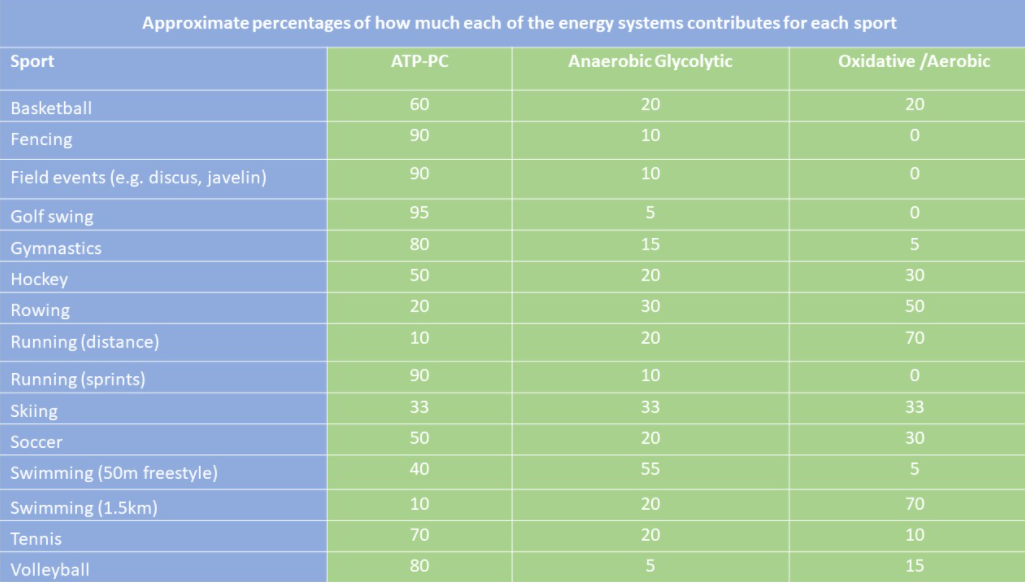
Chart Source: metrifit.com
2. Running slower during your long runs increases your capillary density
Your capillaries are blood vessels that shuttle oxygen to the muscles. Essentially the more you have, the faster you can deliver oxygen and thereby produce energy to run longer.
Running at a slow and steady aerobic pace directly increases your capillary density which allows your body to utilize more oxygen and have more energy to run longer!
3. an increase in type i (slow twitch oxidative) muscle fibers
These fibers (as we have already previously mentioned) are aerobic in nature and allow you to run long endurance distances.
If you are training aerobically you will gain more of these muscle fibers that are essential to long distance running success.
If however you are always training fast and performing mainly speedwork and not slow running you will be building more Type II (anaerobic) muscle fibers that will compromise your ability to run long distances. You simply won't be building the right types of muscle fibers!

4. increases in myoglobin
An increase in myoglobin means you will be able to release more oxygen when you are running at faster speeds.
Running at faster speeds requires more oxygen than what is being delivered to the muscle through the capillaries.
Here you can see how running slower long runs actually benefits you in your ability to become a faster long distance runner!

5. your body learns how to store more carbohydrates to use for energy when it performs aerobic style exercise
This is perfect as we need those carbohydrates to sustain our running pace during long runs!
Supplementing during your long runs has been proven time and again to improve endurance performance and your long run pace. Therefore we need to have our bodies store our carbohydrates efficiently

6. your body learns how to more effectively use fat for Energy
This is a good bonus especially if you haven't properly fueled or carbo-loaded for a long distance run. It will help to offset the negative effects for a bit.

7. You increase the mitochondria in your cells
The mitochondria are the powerhouses or energy production centers of your cells. The more mitochondria you have, the more dense they will be and therefore the more energy you can produce when you run which will allow you to run longer and faster.
8. Increase your heart health and cardiovascular system
All of these benefits are vital to your success as a long distance runner. Therefore, if you want to be able to run long distances and become faster at running them, you must learn how to balance easy training runs with speed workouts during your training week.
What should your long run pace be?
During the majority of your long runs (and for many marathoners, all of their long runs) you should be running a long run pace at about 60% of your Vo2 max and/or about 45 seconds (at least!) to 3 minutes (at the most) slower than your goal race pace.
For example:
If you have a marathon goal race pace of 9 minutes per mile, you would want to run your long runs at about 9 minutes and 45 seconds per mile to up to 12 minutes per mile!
This can be difficult for some runners to do as they feel as if they are barely moving or making progress during their long runs.
But as we discussed previously, it is crucial to your success as a distance runner to run slower than your goal race pace.
When do you want to use a slower-than-goal-pace long run pace?
As a marathoner, easy, slow paced long runs should be run basically all of the time.
You can probably already see how the benefits are essential to being a long distance runner. In order to run you need and want to be able to move oxygen rapidly, run longer distances, generate energy faster, be heart healthy, etc.
In fact, if you want to just be able to run faster while running long distances, you need to run your long runs slower.
Sounds like an oxymoron, doesn’t it.
But again, the benefits stated before will tell you why.
In short, you will be targeting the right energy system and simply put, that is what it is all about. If you skip out on these slower, easy training runs you will not be able to go the distance and reap the benefits that constant speed and hill training will not ever be able to give you.
Should you ever run at a faster long run pace?
Actually, yes!
If you are training for a marathon time goal and have a specific marathon goal pace that you are training and running at then you will need to focus on gaining strength and speed during your training and therefore your approach will be slightly different.
Let's talk a little bit about how your training and therefore long run pace will differ when training for a time goal.
When training for a marathon time goal speed workouts such as tempo runs and interval workouts are where you will train and gain the ability to nail your goal race paces!
I recommend running a tempo run about once a week if you are training for a time goal and to include an interval run once a week for the last 8-10 weeks of your training.
Your long run pace when training for a marathon time goal:
All this to say, there are definite benefits to training at your goal race pace during your long runs but typically this is for just a portion of your long run and not the entire run.
This is the case for goal pace and progressive style long runs which can also be found scheduled in the Break a Time Goal 16 Week Marathon Training Plans.
In a nutshell, during goal pace long runs you will be practicing your goal pace during certain miles of your long run.
During progressive style long runs you will practice your goal pace during the final miles of your long run when your body is already fatigued and under pressure.
However, for the remaining miles, you will still want to run a slower-than-normal/slower-than-goal-pace long run pace which again would be about 45 seconds to up to 3 minutes slower than your goal race pace.

In conclusion
Hopefully this post was able to shine some light on why you want to run a slow long run pace.
Be aware that by running at a long run pace that is too fast for you and your body will lead you to tax that anaerobic energy pathway instead of doing what you want to be doing during your long runs which is building endurance and aerobic muscle fibers that are the only types of muscles that allow you to run long distances for long periods of time.
If your not used to all of the scientific methodology and periodization of training plans I can absolutely see how this might be confusing. Hopefully this has helped clear the air a bit on the subject.
You still might prefer to do some more of your own research on the subject or sometimes it comes down to simply trusting in the physiological science behind a training plan and your body's response to it.
How are you currently running your long runs?
Do you pace yourself at all, is your goal just to finish? have you been pushing the pace and perhaps need to slow down?
One thing is for sure...you can learn a lot about yourself and how you respond to training during your long runs and they are the best determinant for your marathon success!
Related Pages
👋Sign up to receive the free printable strength exercises for runners: 👇
 |
As featured on:

Sources:
McArdle,William, D., et al. Exercise Physiology: Nutrition, Energy, and Human Performance. Lippincott Williams and Wilkins, 2009.
Sarah Russell, et al. “Are You Sabotaging Your Long Run by Running the Wrong Pace?” Runners Connect, 19 Dec. 2021, https://runnersconnect.net/wrong-long-run-pace/.
“Walk Breaks & the Long Run.” GALLOWAY NYC, http://www.gallowaynyc.org/walk-breaks--the-long-run.html.
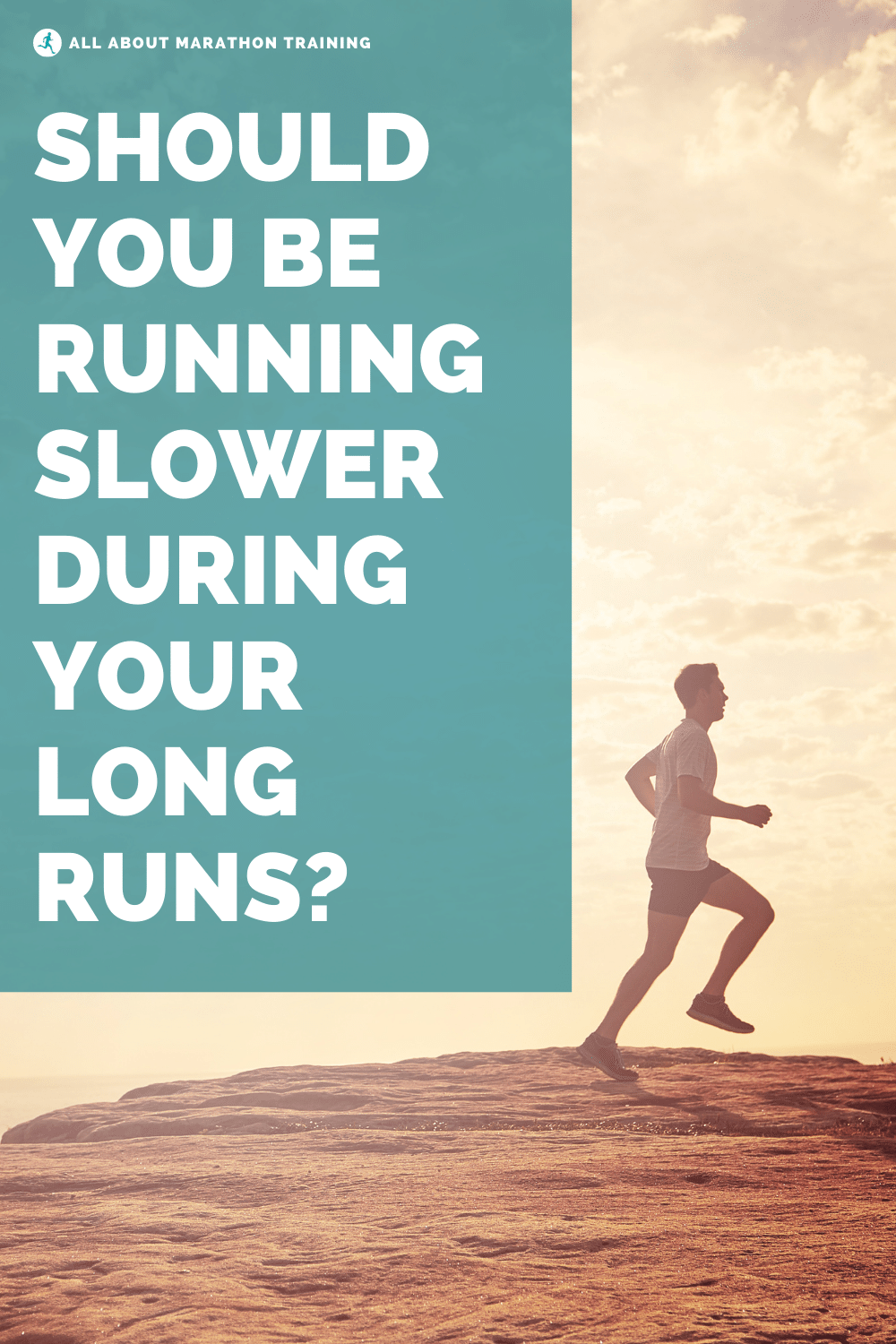

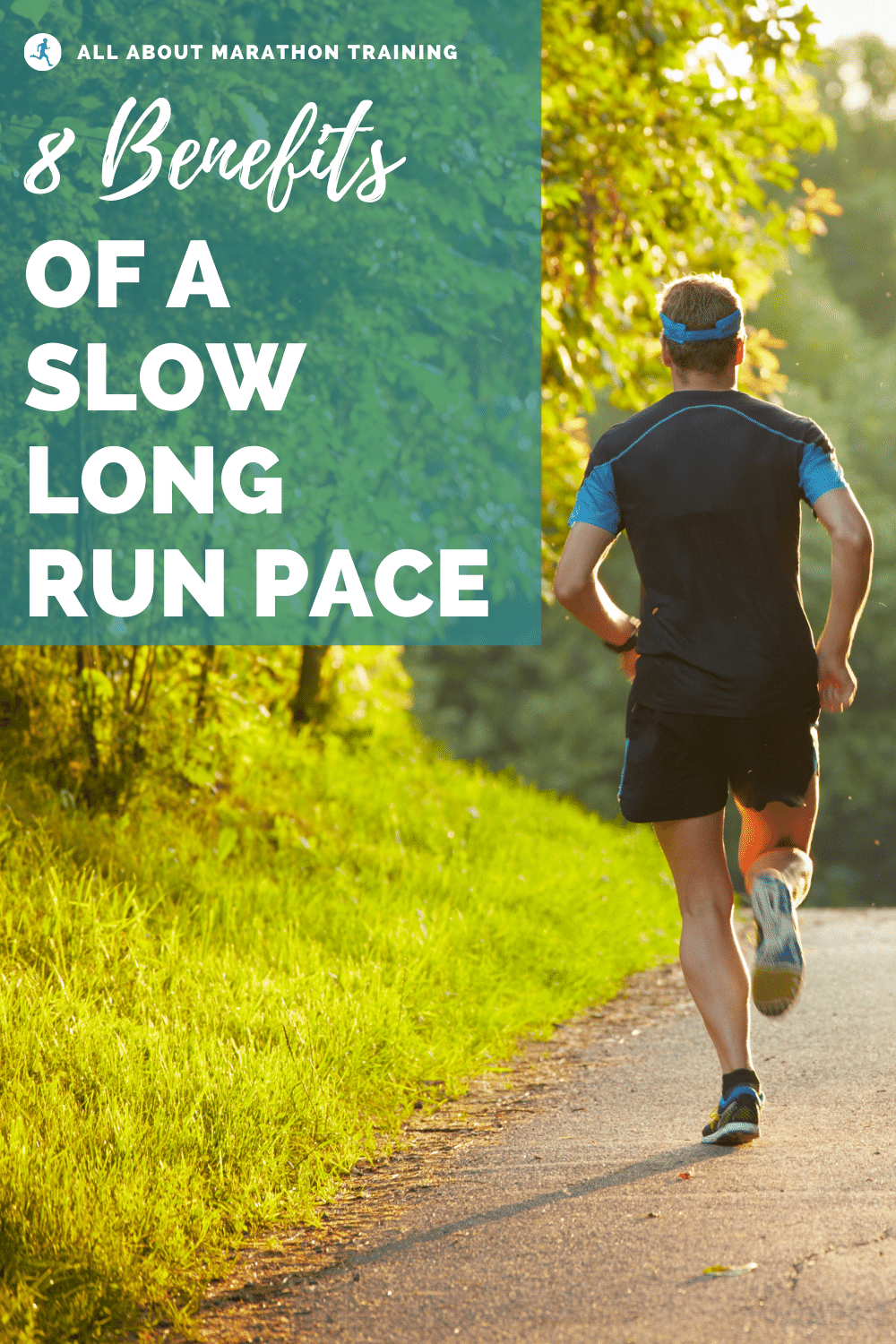



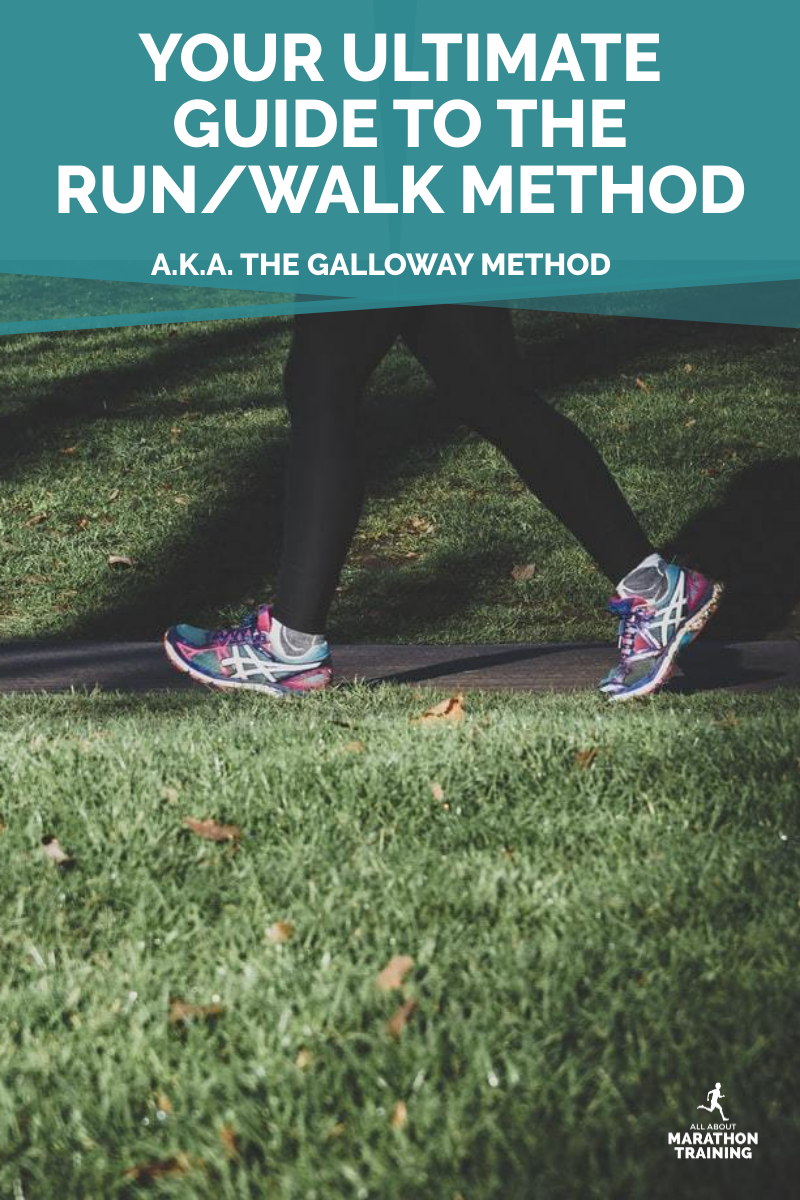
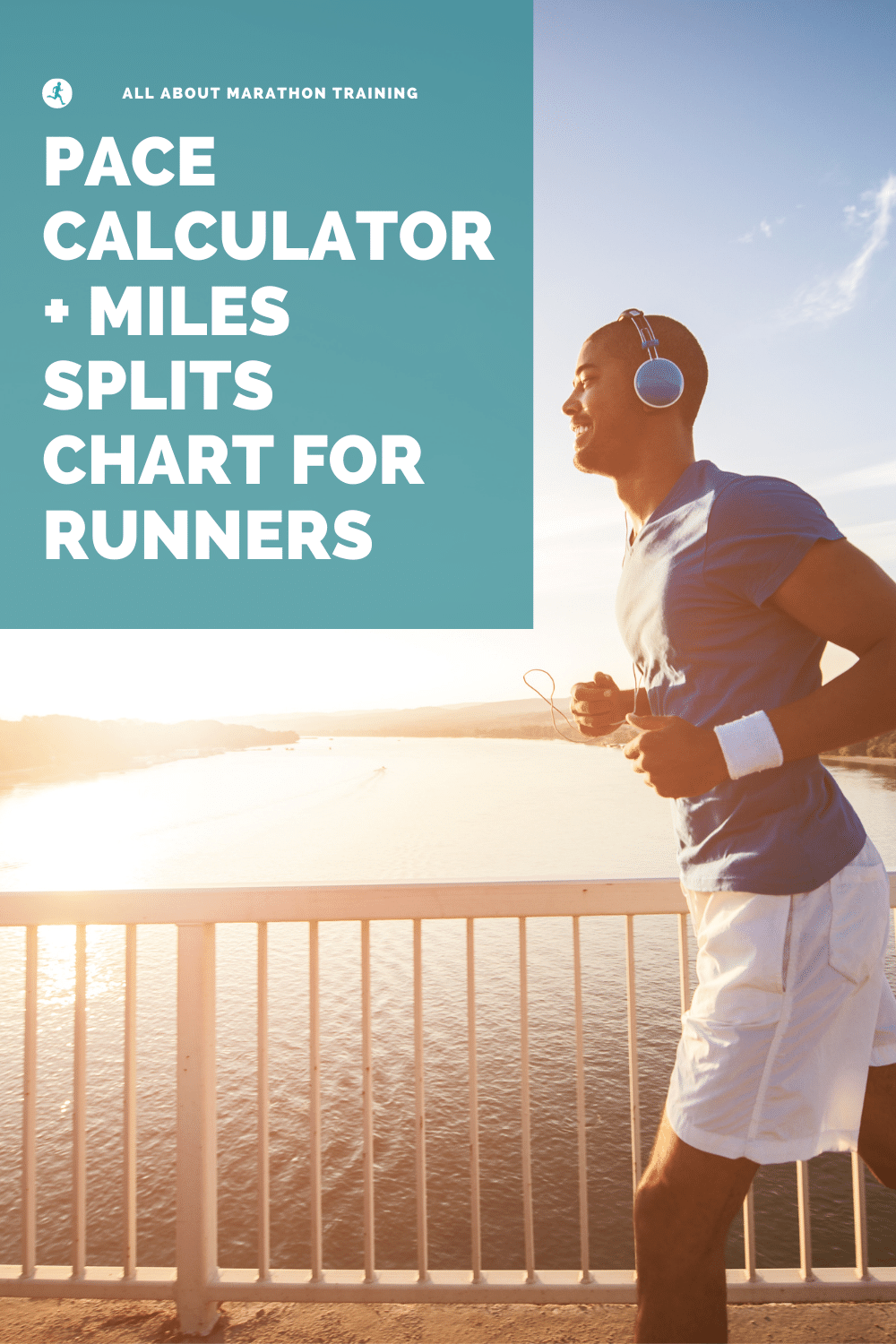


New! Comments
Have your say about what you just read! Leave me a comment in the box below.